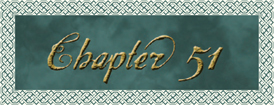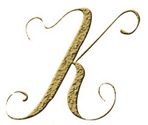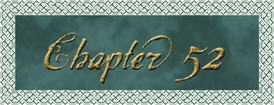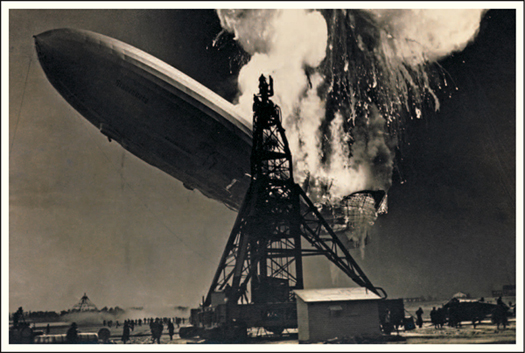
 ATHERINE SOLOMON had always been a prudent driver, but now she was pushing her Volvo at over ninety as she fled blindly up the Suitland Parkway. Her trembling foot had been lodged on the accelerator for a full mile before her panic began to lift. She now realized her uncontrollable shivering was no longer solely from fear.
ATHERINE SOLOMON had always been a prudent driver, but now she was pushing her Volvo at over ninety as she fled blindly up the Suitland Parkway. Her trembling foot had been lodged on the accelerator for a full mile before her panic began to lift. She now realized her uncontrollable shivering was no longer solely from fear.
I’m freezing.
The wintry night air was gushing through her shattered window, buffeting her body like an arctic wind. Her stockinged feet were numb, and she reached down for her spare pair of shoes, which she kept beneath the passenger seat. As she did, she felt a stab of pain from the bruise on her throat, where the powerful hand had latched on to her neck.
The man who had smashed through her window bore no resemblance to the blond-haired gentleman whom Katherine knew as Dr. Christopher Abaddon. His thick hair and smooth, tanned complexion had disappeared. His shaved head, bare chest, and makeup-smeared face had been unveiled as a terrifying tapestry of tattoos.
She heard his voice again, whispering to her in the howl of wind outside her broken window. Katherine, I should have killed you years ago … the night I killed your mother.
Katherine shivered, feeling no doubt. That was him. She had never forgotten the look of fiendish violence in his eyes. Nor had she ever forgotten the sound of her brother’s single gunshot, which had killed this man, propelling him off a high ledge into the frozen river below, where he plummeted through the ice and never resurfaced. Investigators had searched for weeks, never finding his body, and finally decided it had been washed away by the current out to the Chesapeake Bay.
They were wrong, she now knew. He is still alive.
And he’s back.
Katherine felt angst-ridden as the memories flooded back. It was almost exactly ten years ago. Christmas Day. Katherine, Peter, and their mother—her entire family—were gathered at their sprawling stone mansion in Potomac, nestled on a two-hundred-acre wooded estate with its own river running through it.
As was tradition, their mother worked diligently in the kitchen, rejoicing in the holiday custom of cooking for her two children. Even at seventy-five years of age, Isabel Solomon was an exuberant cook, and tonight the mouthwatering smells of roast venison, parsnip gravy, and garlic mashed potatoes wafted through the house. While Mother prepared the feast, Katherine and her brother relaxed in the conservatory, discussing Katherine’s latest fascination—a new field called Noetic Science. An unlikely fusion of modern particle physics and ancient mysticism, Noetics had absolutely captivated Katherine’s imagination.
Physics meets philosophy.
Katherine told Peter about some of the experiments she was dreaming up, and she could see in his eyes that he was intrigued. Katherine felt particularly pleased to give her brother something positive to think about this Christmas, since the holiday had also become a painful reminder of a terrible tragedy.
Peter’s son, Zachary.
Katherine’s nephew’s twenty-first birthday had been his last. The family had been through a nightmare, and it seemed that her brother was only now finally learning how to laugh again.
Zachary had been a late bloomer, frail and awkward, a rebellious and angry teenager. Despite his deeply loving and privileged upbringing, the boy seemed determined to detach himself from the Solomon “establishment.” He was kicked out of prep school, partied hard with the “celebrati,” and shunned his parents’ exhaustive attempts to provide him firm and loving guidance.
He broke Peter’s heart.
Shortly before Zachary’s eighteenth birthday, Katherine had sat down with her mother and brother and listened to them debating whether or not to withhold Zachary’s inheritance until he was more mature. The Solomon inheritance—a centuries-old tradition in the family—bequeathed a staggeringly generous piece of the Solomon wealth to every Solomon child on his or her eighteenth birthday. The Solomons believed that an inheritance was more helpful at the beginning of someone’s life than at the end. Moreover, placing large pieces of the Solomon fortune in the hands of eager young descendants had been the key to growing the family’s dynastic wealth.
In this case, however, Katherine’s mother argued that it was dangerous to give Peter’s troubled son such a large sum of money. Peter disagreed. “The Solomon inheritance,” her brother had said, “is a family tradition that should not be broken. This money may well force Zachary to be more responsible.”
Sadly, her brother had been wrong.
The moment Zachary received the money, he broke from the family, disappearing from the house without taking any of his belongings. He surfaced a few months later in the tabloids: TRUST FUND PLAYBOY LIVING EUROPEAN HIGH LIFE.
The tabloids took joy in documenting Zachary’s spoiled life of debauchery. The photos of wild parties on yachts and drunken disco stupors were hard for the Solomons to take, but the photos of their wayward teen turned from tragic to frightening when the papers reported Zachary had been caught carrying cocaine across a border in Eastern Europe: SOLOMON MILLIONAIRE IN TURKISH PRISON.
The prison, they learned, was called Soganlik—a brutal F-class detention center located in the Kartal district outside of Istanbul. Peter Solomon, fearing for his son’s safety, flew to Turkey to retrieve him. Katherine’s distraught brother returned empty-handed, having been forbidden even to visit with Zachary. The only promising news was that Solomon’s influential contacts at the U.S. State Department were working on getting him extradited as quickly as possible.
Two days later, however, Peter received a horrifying international phone call. The next morning, headlines blared: SOLOMON HEIR MURDERED IN PRISON.
The prison photos were horrific, and the media callously aired them all, even long after the Solomons’ private burial ceremony. Peter’s wife never forgave him for failing to free Zachary, and their marriage came to an end six months later. Peter had been alone ever since.
It was years later that Katherine, Peter, and their mother, Isabel, were gathered quietly for Christmas. The pain was still a presence in their family, but mercifully it was fading with each passing year. The pleasant rattle of pots and pans now echoed from the kitchen as their mother prepared the traditional feast. Out in the conservatory, Peter and Katherine were enjoying a baked Brie and relaxed holiday conversation.
Then came an utterly unexpected sound.
“Hello, Solomons,” an airy voice said behind them.
Startled, Katherine and her brother spun to see an enormous muscular figure stepping into the conservatory. He wore a black ski mask that covered all of his face except his eyes, which shone with feral ferocity.
Peter was on his feet in an instant. “Who are you?! How did you get in here?!”
“I knew your little boy, Zachary, in prison. He told me where this key was hidden.” The stranger held up an old key and grinned like a beast. “Right before I bludgeoned him to death.”
Peter’s mouth fell open.
A pistol appeared, aimed directly at Peter’s chest. “Sit.”
Peter fell back into his chair.
As the man moved into the room, Katherine was frozen in place. Behind his mask, the man’s eyes were wild like those of a rabid animal.
“Hey!” Peter yelled, as if trying to warn their mother in the kitchen. “Whoever you are, take what you want, and get out!”
The man leveled his gun at Peter’s chest. “And what is it you think I want?”
“Just tell me how much,” Solomon said. “We don’t have money in the house, but I can—”
The monster laughed. “Do not insult me. I have not come for money. I have come tonight for Zachary’s other birthright.” He grinned. “He told me about the pyramid.”
Pyramid? Katherine thought in bewildered terror. What pyramid?
Her brother was defiant. “I don’t know what you’re talking about.”
“Don’t play dumb with me! Zachary told me what you keep in your study vault. I want it. Now.”
“Whatever Zachary told you, he was confused,” Peter said. “I don’t know what you’re talking about!”
“No?” The intruder turned and aimed the gun at Katherine’s face. “How about now?”
Peter’s eyes filled with terror. “You must believe me! I don’t know what it is you want!”
“Lie to me one more time,” he said, still aiming at Katherine, “and I swear I will take her from you.” He smiled. “And from what Zachary said, your little sister is more precious to you than all your—”
“What’s going on?!” Katherine’s mother shouted, marching into the room with Peter’s Browning Citori shotgun—which she aimed directly at the man’s chest. The intruder spun toward her, and the feisty seventy-five-year-old woman wasted no time. She fired a deafening blast of pellets. The intruder staggered backward, firing his handgun wildly in all directions, shattering windows as he fell and crashed through the glass doorway, dropping the pistol as he fell.
Peter was instantly in motion, diving on the loose handgun. Katherine had fallen, and Mrs. Solomon hurried to her side, kneeling beside her. “My God, are you hurt?!”
Katherine shook her head, mute with shock. Outside the shattered glass door, the masked man had clambered to his feet and was running into the woods, clutching his side as he ran. Peter Solomon glanced back to make sure his mother and sister were safe, and seeing they were fine, he held the pistol and raced out the door after the intruder.
Katherine’s mother held her hand, trembling. “Thank heavens you’re okay.” Then suddenly her mother pulled away. “Katherine? You’re bleeding! There’s blood! You’re hurt!”
Katherine saw the blood. A lot of blood. It was all over her. But she felt no pain.
Her mother frantically searched Katherine’s body for a wound. “Where does it hurt!”
“Mom, I don’t know, I don’t feel anything!”
Then Katherine saw the source of the blood, and she went cold. “Mom, it’s not me …” She pointed to the side of her mother’s white satin blouse, where blood was running freely, and a small tattered hole was visible. Her mother glanced down, looking more confused than anything else. She winced and shrank back, as if the pain had just hit her.
“Katherine?” Her voice was calm, but suddenly it carried the weight of her seventy-five years. “I need you to call an ambulance.”
Katherine ran to the hall phone and called for help. When she got back to the conservatory, she found her mother lying motionless in a pool of blood. She ran to her, crouching down, cradling her mother’s body in her arms.
Katherine had no idea how much time had passed when she heard the distant gunshot in the woods. Finally, the conservatory door burst open, and her brother, Peter, rushed in, eyes wild, gun still in his hand. When he saw Katherine sobbing, holding their lifeless mother in her arms, his face contorted in anguish. The scream that echoed through the conservatory was a sound Katherine Solomon would never forget.

 AL’AKH COULD feel the tattooed muscles on his back rippling as he sprinted back around the building toward the open bay door of Pod 5.
AL’AKH COULD feel the tattooed muscles on his back rippling as he sprinted back around the building toward the open bay door of Pod 5.
I must gain access to her lab.
Katherine’s escape had been unanticipated … and problematic. Not only did she know where Mal’akh lived, she now knew his true identity … and that he was the one who had invaded their home a decade earlier.
Mal’akh had not forgotten that night either. He had come within inches of possessing the pyramid, but destiny had obstructed him. I was not yet ready. But he was ready now. More powerful. More influential. Having endured unthinkable hardship in preparation for his return, Mal’akh was poised tonight to fulfill his destiny at last. He felt certain that before the night was over, he would indeed be staring into the dying eyes of Katherine Solomon.
As Mal’akh reached the bay door, he reassured himself that Katherine had not truly escaped; she had only prolonged the inevitable. He slid through the opening and strode confidently across the darkness until his feet hit the carpet. Then he took a right turn and headed for the Cube. The banging on the door of Pod 5 had stopped, and Mal’akh suspected the guard was now trying to remove the dime Mal’akh had jammed into the key panel to render it useless.
When Mal’akh reached the door that led into the Cube, he located the outer keypad and inserted Trish’s key card. The panel lit up. He entered Trish’s PIN and went inside. The lights were all ablaze, and as he moved into the sterile space, he squinted in amazement at the dazzling array of equipment. Mal’akh was no stranger to the power of technology; he performed his own breed of science in the basement of his home, and last night some of that science had borne fruit.
The Truth.
Peter Solomon’s unique confinement—trapped alone in the in-between—had laid bare all of the man’s secrets. I can see his soul. Mal’akh had learned certain secrets he anticipated, and others he had not, including the news about Katherine’s lab and her shocking discoveries. Science is getting close, Mal’akh had realized. And I will not allow it to light the way for the unworthy.
Katherine’s work here had begun using modern science to answer ancient philosophical questions. Does anyone hear our prayers? Is there life after death? Do humans have souls? Incredibly, Katherine had answered all of these questions, and more. Scientifically. Conclusively. The methods she used were irrefutable. Even the most skeptical of people would be persuaded by the results of her experiments. If this information were published and made known, a fundamental shift would begin in the consciousness of man. They will start to find their way. Mal’akh’s last task tonight, before his transformation, was to ensure that this did not happen.
As he moved through the lab, Mal’akh located the data room that Peter had told him about. He peered through the heavy glass walls at the two holographic data-storage units. Exactly as he said they would be. Mal’akh found it hard to imagine that the contents of these little boxes could change the course of human development, and yet Truth had always been the most potent of all the catalysts.
Eyeing the holographic storage units, Mal’akh produced Trish’s key card and inserted it in the door’s security panel. To his surprise, the panel did not light up. Apparently, access to this room was not a trust extended to Trish Dunne. He now reached for the key card he had found in Katherine’s lab-coat pocket. When he inserted this one, the panel lit up.
Mal’akh had a problem. I never got Katherine’s PIN. He tried Trish’s PIN, but it didn’t work. Stroking his chin, he stepped back and examined the three-inch-thick Plexiglas door. Even with an ax, he knew he would be unable to break through and obtain the drives he needed to destroy.
Mal’akh had planned for this contingency, however.
Inside the power-supply room, exactly as Peter had described, Mal’akh located the rack holding several metal cylinders resembling large scuba tanks. The cylinders bore the letters LH, the number 2, and the universal symbol for combustible. One of the canisters was connected to the lab’s hydrogen fuel cell.
Mal’akh left one canister connected and carefully heaved one of the reserve cylinders down onto a dolly beside the rack. Then he rolled the cylinder out of the power-supply room, across the lab, to the Plexiglas door of the data-storage room. Although this location would certainly be plenty close enough, he had noticed one weakness in the heavy Plexiglas door—the small space between the bottom and the jamb.
At the threshold, he carefully laid the canister on its side and slid the flexible rubber tube beneath the door. It took him a moment to remove the safety seals and access the cylinder’s valve, but once he did, ever so gently, he uncocked the valve. Through the Plexiglas, he could see the clear, bubbling liquid begin draining out of the tube onto the floor inside the storage room. Mal’akh watched the puddle expand, oozing across the floor, steaming and bubbling as it grew. Hydrogen remained in liquid form only when it was cold, and as it warmed up, it would start to boil off. The resulting gas, conveniently, was even more flammable than the liquid.

THE CRASH OF THE HINDENBURG, 1937
52.1: Private Collection/Courtesy of Swann Auction Galleries/The Bridgeman Art Library
Remember the Hindenburg.
Mal’akh hurried now into the lab and retrieved the Pyrex jug of Bunsen-burner fuel—a viscous, highly flammable, yet noncombustible oil. He carried it to the Plexiglas door, pleased to see the liquid hydrogen canister was still draining, the puddle of boiling liquid inside the data-storage room now covering the entire floor, encircling the pedestals that supported the holographic storage units. A whitish mist now rose from the boiling puddle as the liquid hydrogen began turning to gas … filling the small space.
Mal’akh raised the jug of Bunsen-burner fuel and squirted a healthy amount on the hydrogen canister, the tubing, and into the small opening beneath the door. Then, very carefully, he began backing out of the lab, leaving an unbroken stream of oil on the floor as he went.

The dispatch operator handling 911 calls for Washington, D.C., had been unusually busy tonight. Football, beer, and a full moon, she thought as yet another emergency call appeared on her screen, this one from a gas-station pay phone on the Suitland Parkway in Anacostia. A car accident probably.
“Nine-one-one,” she answered. “What is your emergency?”
“I was just attacked at the Smithsonian Museum Support Center,” a panicked woman’s voice said. “Please send the police! Forty-two-ten Silver Hill Road!”
“Okay, slow down,” the operator said. “You need to—”
“I need you to send officers also to a mansion in Kalorama Heights where I think my brother may be held captive!”
The operator sighed. Full moon.